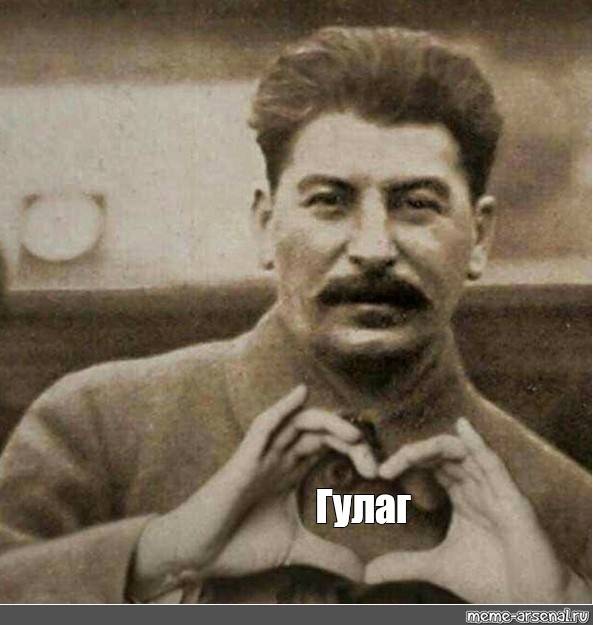The other day I briefly met an old Soviet dissident who left the USSR for the USA and now left the USA for Russia. I’ve never met this guy before and probably will never see him again. The event that brought us together didn’t imply that we must be friends or even talk, so we didn’t. But this Bidenesque apparition of the Cold War era made a speech that gave me some thoughts that I’m eager to share.
I think it’s totally fine to seek a perfect place for yourself, your career, your family, your religion. It’s also totally fine to keep switching your allegiance back and forth when you feel that your current motherland doesn’t live up to your expectations or fails to perform under the social contract as you see it. I’m not even being sarcastic. It is ok. Your life is yours to live, no one will give you a second chance to be happy or simply to be yourself.
What is not ok though, is lying. If a person stands up to tell the story of his life and tells something like, “The USSR was not the place where I could prosper and build a career of my dream, where I could never go beyond a specific income cap, where I couldn’t travel the way I desired”, it’s fine.
But when someone starts giving the audience the whole Western indoctrination package about the USSR wanting hegemony and starting the Cold War, I feel sick.
The idea of exporting revolution died with Trotsky. The Cold War was declared on a bleeding country by no one other than sir Winston Churchill. The USSR didn’t want hegemony more than the USA, and probably only made steps towards it because of the USA (and NATO). Speaking of NATO, it predated the Pact of Warsaw. I must also mention the Operation Unthinkable and the Operation Dropshot seriously contemplated by the West.
Western colonial powers actually made numerous mistakes in early 20th century by humiliating several of their geopolitical rivals to the degree where revenge becomes inevitable. They hoped the Russian Empire would disappear, but it resurfaced as the USSR. They hoped Germany would be reduced to a minor European principality, but Hitler “made it great again” and, what’s worse, refused to attack the USSR before attacking his immediate neighbours.
Being pro-USSR was not easy during the Cold War. It wasn’t a choice that catered for personal ambitions, personal wealth, personal liberty in the sense that means being the citizen of the world. Ironically, Soviet ideology implies internationalism, yet, the western block never actually shared this value having a distinctive line between what’s now known as Mr. Borrell’s Garden and the rest of the word’s “jungle”. And that’s why, when and how the First and the Second world actually appeared.
While it was not the fault of the USSR, but it might be unbearable for some people to feel like a severed member of the western civilization (like it or not, Russia and most part of the USSR gravitate to the western civilization historically, linguistically, religiously, etc.). Those people failed to resist the pressure and left the USSR. Understandable.
To be accepted in the West and probably to facilitate the integration, they often posed as dissidents and slurred the USSR. Some actually did it sincerely after seeing 100500 sorts of sausages in western supermarkets (later they regretted quality of Soviet food, but it’s another part of the story).
Of course, there were true dissidents who were disappointed in the Soviet idea, considered it wrong and praised capitalism as the only way out for the world as described in the End of History. Yet, I don’t think modern market economies would have had any appeal but for the Russian Revolution that scared wild capitalists of the time and created an alternative forcing them to consider rights of the working class too. Some believed that there were more civil freedoms in the West (freedome of speech in particular). But the more I watch old Soviet movies and follow modern Western news, the more I am convinced that in many ways the USSR offered more freedom of thinking and expression. Full freedom of speech is, fortunately or unfortunately, a myth. It doesn’t exist as long as states exist. There is always some limit to whay you can say publicly, and I don’t think that in McCarthyist USA there was more of it than in the USSR. Modern Russia seems to be the least reactionist society with a lot of freedom.
But let’s get back to the subject. Now some old dissidents return to Russia. Some of them don’t just return seeking a better place to spend their twilight years. They are being loud and political. The west seems to have finally rotten and lost its appeal to them. Russia is not so bad in the end of the day. Fine, come back. But before you speak about how you every time resisted Evil in the form of first Communism and then Neoliberalism, think of 1990s Russia that was on its way to the Bright Capitalist Future after abandoning the evil you hated so much. Why haven’t you come back then and helped your struggling motherland? Where was your loud voice we probably needed so much for encouragement? Eh?
It’s ok to follow the leader, it’s not ok to cover it up with virtue signalling.



Thanks.
I wouldn’t trust anyone that called their country evil, whether it was the USSR or the USA. The men in power can be evil, though they are probably a mixture, but any country is mostly regular people living their lives.
Nice to see Comrade Stalin at the top of the article. His photo reminds me of something I discovered about modern historians.
I have a book by the historian Norman Davies. In it, he claims that around 400,000 people were killed in a particular camp near Minsk under Stalin. There is a footnote, which refers to a website. As I’d seen that, when the NKVD/MVD archives had been opened in the 1990’s, their records thought that under one million people had died in custody in one way or another from 1928 to 1953, I thought that 400,000 for one camp seemed rather steep, I decided to take a look at the source. The site had two footnotes for the statistic, one of which referred to an article Norman Davies wrote for the Daily Mail, but I checked out the other one, which was another work by Mr Davies (I suspect he runs the site), but that had another footnote, referring to an article where a lower number was mentioned. I had some spare time, so, where an article was on the internet, I kept following the footnotes back from paper to paper and almost each time, the historian in question had taken the number from the source they had referenced and inflated it a bit.
The language used was quite interesting: one person would say the death toll was estimated at 25,000, the next would say “under 30,000”, the one after that would say “around 30,000”, the next would say “under 40,000”, and the numbers would creep up and up. None of them could be accused of completely misrepresenting their source, but the fact that no-one just quoted the number, as stated in their source seemed very strange. Very suspicious, in fact.
By the way, the final source was the NKVD records reported on a Byelorussian government site. That said around 8000 people had entered the camp and were executed or died before being released.
I think the reason is that there still is a deep need in the West to make the Soviet Union and communism in general look worse than Nazism, now more than ever. One million deaths isn’t enough for that, you need to beat Hitler’s six million Jews or 27 million Soviet citizens. So 8,000 becomes 400,000 and there isn’t really any push-back.
Stalin was not an angel and he loved power, but considering him consider also his counterparts: Hitler, Franco, Mussolini, Pilsudsky, even Churchill and Trumen. He was in danger of a coup and had to ensure 100% security and stability of power to save the country. Were there innocent victims? Definitely. But what was at stake? Also now 1990s revelations are being reconsidered and many of the so-called victimes appear to be just normal criminals…
Stalin was up to the job…
Thanks for the insight Maria. Patrick put it well about country vs leaders.
Yes, there are elites who want to keep their billions.